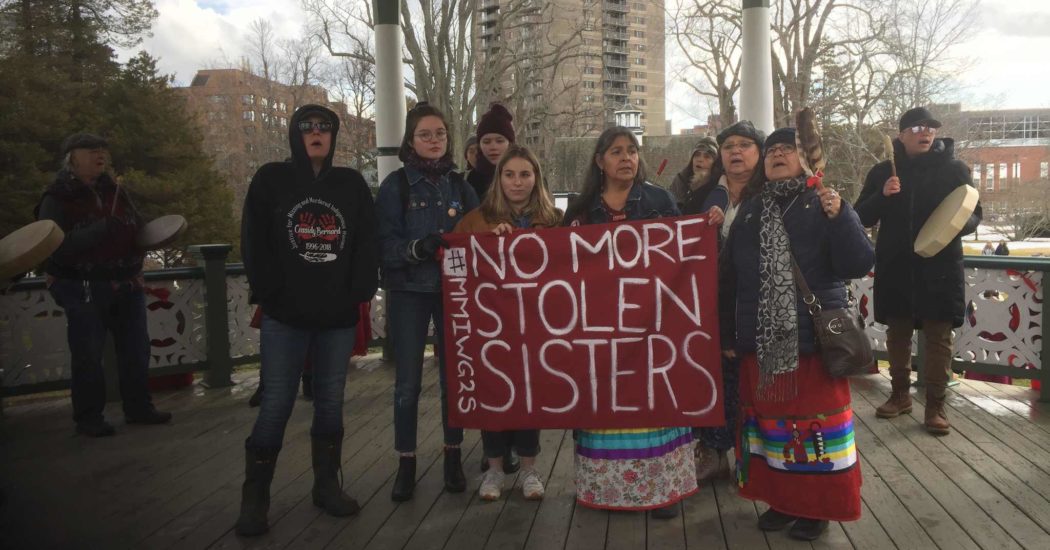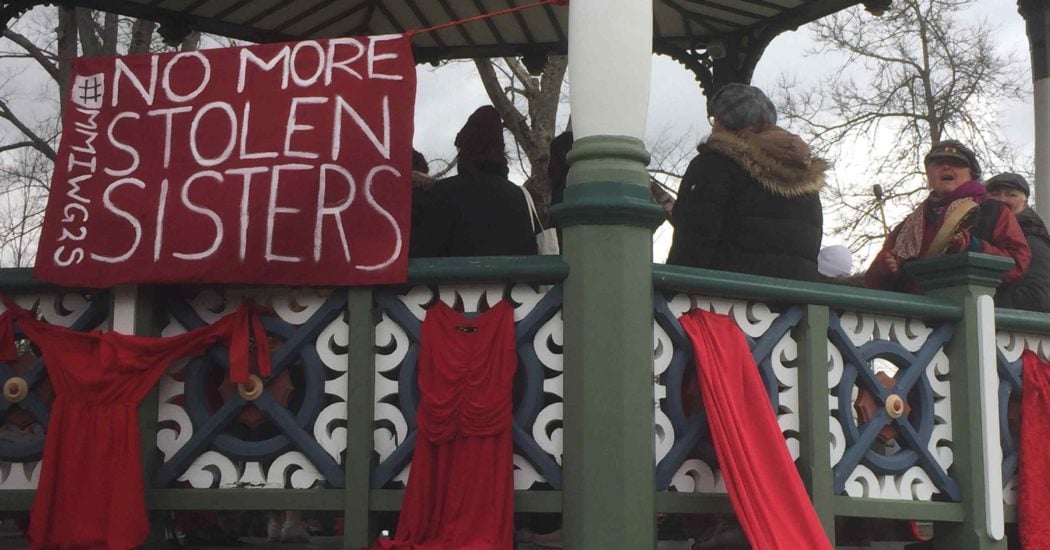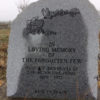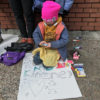
KJIPUKTUK (Halifax) – The cold weather didn’t stop Indigenous people and their allies from coming to the Public Gardens in downtown Halifax to attend the Red Dresses in K’jipuktuk event on Saturday afternoon.
People brought red dresses and red ties to hang around the Gardens and the Bandstand, each one representing murdered and missing Indigenous women and girls.
They came to learn, to hold space for the grieving, and to support those most affected by the oppression and trauma of living under colonialism.
The event was also in response to the increased violence Indigenous people across Turtle Island are facing, as well as the proposed pipeline and imposed men camps in Wet’suwet’en territory.
The REDress Project originated in 2014 as a public art installation by Métis artist Jaime Black, in response to the thousands of cases of missing and murdered Indigenous women and girls.

One of the Alton Gas water protectors pointed out, “To have understanding, one must listen. To listen, one must first stop talking.”
“It’s important to honour the voices of those on the front lines protecting Mother Earth, especially during a Red Dress event. People need to be heard,” she said.
After Matriarchs and Grandmothers performed the Honour Song, Kukuwes Wowkis spoke of the racism that is increasing as a result of widespread actions of solidarity with the We’tsuwet’en land protectors.
Kukuwes Wowkis also mentioned how the murder of her niece, 22 year old mother of two Cassidy Bernard, affected her personally but also her community of We’koqma’q and the entire Mi’kmaq nation.
“I have grandchildren now and I don’t want them to be fighting the way we have to fight now. We need to change the whole system. You guys should feel the same way about your children and grandchildren too. Because everything we do as indigenous people, we are standing up for your children and your grandchildren.”
“You know, I am angry, my niece didn’t have to die, a lot of the women didn’t have to die, but they did.”
Mi’kmaw grandmother Dorene Bernard led the group in a prayer.
“We pray for those responsible to be held accountable. Today we talk about the violence being done to women, we are looking at the violence to our Mother Earth as well,” Bernard said.
“Until they stop raping the land and harming the water, there is not going to be much change to how they treat the women, the Indigenous women who are standing to protect and the women allies who are standing with us.”
“You are the life givers, you are responsible for protecting the world, the environment, you are responsible for Mother Earth and the water, and for the life that you bring into the world.”
“We aren’t protesters, we don’t have privilege, and we aren’t radicals, we are protectors.” Dorene Bernard reminded the crowd.
At one point somebody let people know that there were two plainclothes RCMP officers present at the event.
When asked by this reporter, neither officer seemed to understand why some people would find their presence triggering.
Nor did they consider how their presence interfered with the need to create a safe space for people affected by trauma. Both police officers stayed for the entire event.
“If the RCMP were to spend more time looking for the people responsible for the missing and murdered, than the wasted time they spend harassing us on our own lands then things might change,” an elder remarked.
“Here we are as Indigenous Peoples. We have always kept the peace and it is the government who’s always broken it. So why does the government always talk about reconciliation if they never followed it,” Kukuwes Wowkis wondered.
See also: “They were lights.” Walking With Our Sisters memorial visits Halifax
With a special thanks to our generous donors who make publication of the Nova Scotia Advocate possible.
Subscribe to the Nova Scotia Advocate weekly digest and never miss an article again. It’s free!




How did you find out about the plainclothes officers? Can you name them?